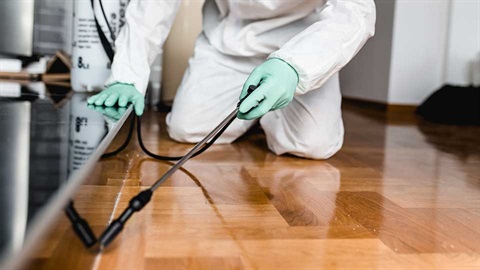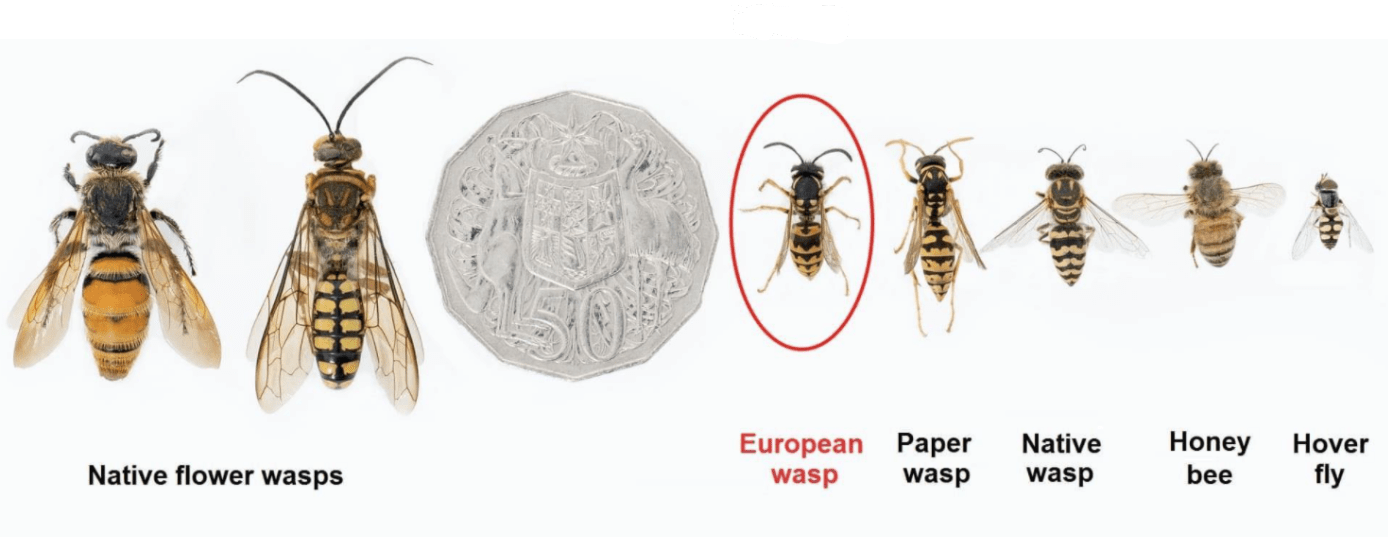Pest control information

Council provide information on pest control for rats, mice, cockroaches, bees and wasps.
The following information is designed to help guide you if you are having trouble issues with rats, mice, cockroaches, bees and wasps.
We recommend the following good pest control practices to prevent these pests:
- Chase the pests out using a chemical bait or trap
- Starve pests by removing any possible source of food
- Build pests out by sealing all gaps, ensuring there is no way of entering the property
- Keep areas outside the house tidy
- Keep rubbish in bins with lids. If your council bin is damaged contact our Customer Service Team
- Keep lawns short and be sure to remove all green waste
- Avoiding leaving food, drink or pet food outside
- Pick up any fallen fruit of food scraps
- Keep compost covered at all times
- Keep swimming pools covered when not in use and cover birdbaths and fish ponds
European wasps and bee swarms
Please be mindful that European wasps and bees are most common in summer.
European wasps are widespread in Victoria and are an increasing problem in Australia due to lack of predators and warm weather conditions. These wasps are far more aggressive than native wasps.
- European wasps have yellow and black bodies, with yellow legs - different from the honey bee which has black legs.
- European wasps can build their nests underground and in trees as well as under, or in the walls of houses. The nests look like grey cardboard and can grow to the size of a football.

Bees are slightly smaller than wasps and are less aggressive, usually only stinging in self-defence. They travel in swarms and often stay in an area only 1 or 2 days before moving on.
If you come across a group of bees swarming in your or a neighbouring property, contact SwarmPatrol to report the bee swarm. They will facilitate notification of any swarms or feral colonies which can then be collected by beekeepers to be relocated. For more information on European wasps, please visit the Department of Health and Human Services website.
- If you notice any European wasps nests or bees hives on nature strips, Council buildings, or in parks around Darebin, please contact us and we will arrange for it to be removed. if wasps nests and bee swarms are found on light poles, contact the service providers:
- AGL - 133 000
- Origin Energy - 131 260
- Jemena Electricity Networks - 131 626
- CitiPower - 1300 301 101
- Telecommunication pits - call Telstra - 132 200
If you come to find European wasps nesting in your own backyard, please don’t attempt to remove the nest yourself as the wasps can become extremely aggressive when attacked and pack a nasty sting. A licensed pest controller should be your first port of call.
If you believe the wasps on a neighbouring property are creating a public nuisance, it is recommended that you speak to the property owner first about your observations. If your neighbour doesn't organise to remove the wasps nest please contact our Customer Service Team.
Other Common Pests in Victoria include:
Ants - pest control (health.vic.gov.au)
Bedbugs - pest control (health.vic.gov.au)
Cockroaches - pest control (health.vic.gov.au)
European wasps - pest control (health.vic.gov.au)
Rodents - pest control (health.vic.gov.au)
Spiders - pest control (health.vic.gov.au)
Where can I find a licensed pest control operator?
Council does not offer Pest Control Services but when engaging the service of a Pest Controller we recommend that you ensure the person is licensed.
Find a licensed pest control operator (health.vic.gov.au)
More information:
Customer service
Call: 03 8470 8888
Email: mailbox@darebin.vic.gov.au